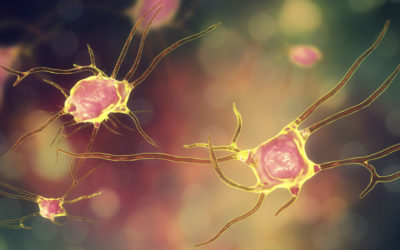Quick Hits
Daily brief research updates from the cognitive sciences

Don’t try to change minds, but simply change behaviour is the result a group of researchers have come to with regard to vaccinations.
This might sound a bit strange as there had been a lot of shouting over vaccinations during the pandemic – but ironically not that much before. And there seems to be a prevailing sense that we should educate people to try to convince them to take the vaccination, any vaccination at that.
Changing beliefs would be part of a change process of changing antecedents, the things that come before the behaviour. Sounds like a good plan, on paper at least. But Brewer et al. from the University of Colorado conducted a comprehensive scientific review of the academic literature around the psychology of vaccinations and came to a different conclusion.
They found that simply focusing on the behaviour and making this easier was the most effective way to increase vaccination rates. This could be through simple things like reminders, help making appointments, and simply taking away as many barriers as possible.
Obviously, some people will still resist. And the research has shown that trying to change beliefs is very hard, ineffective, and even if you can do it, uptake is still very low.
When it comes to resistance, they found the best way to counter it is to simply reiterate the facts rather than try some clever way to convince someone. The other thing that contributes to hesitancy is conflicting information – so get the facts straight and give clear and consistent information.
The final thing they found is that social influence was also strong – so if your peer group are getting vaccinated then the chances that you will too are much higher.
So, to get people to get their jabs COVID or not:
- Make it easy
- Give clear consistent information
- Use social groups where possible
Easy peasy, eh!?

Andy Habermacher
Andy is author of leading brains Review, Neuroleadership, and multiple other books. He has been intensively involved in writing and research into neuroleadership and is considered one of Europe’s leading experts. He is also a well-known public speaker, speaking on the brain and human behaviour.
Andy is also a masters athlete (middle distance running) and competes regularly at international competitions (and holds a few national records in his age category).
Reference
Noel T. Brewer, Gretchen B. Chapman, Alexander J. Rothman, Julie Leask, Allison Kempe.
Increasing Vaccination: Putting Psychological Science Into Action.
Psychological Science in the Public Interest, 2018; 18 (3): 149
DOI: 10.1177/1529100618760521
More Quick Hits
Think Like a Kid to Learn Better?
Think like a kid may sound like a good piece of advice – but with some interesting twists…
Those Who Distrust Humans, Trust AI
We probably all know someone who is extremely distrustful of fellow human beings…
Watching TV With Your Child Can Help Cognitive Development
This is another study to show that there is no quick and easy answer to the question of screen time and children…
How Fear Gets Stuck in (Some) Brains
Fear is an important human emotion and essential to survival so not to be underestimated…
Your Brain Switches Between Remembering and Learning
Learning and memory are key functions of the brain and ones that attract a lot of attention and research…
How Daily Rhythms Help Your Brain Grow After Injury
Always nice to know that you brain can grow – and it is still met with surprise when I explain how this can happen…






